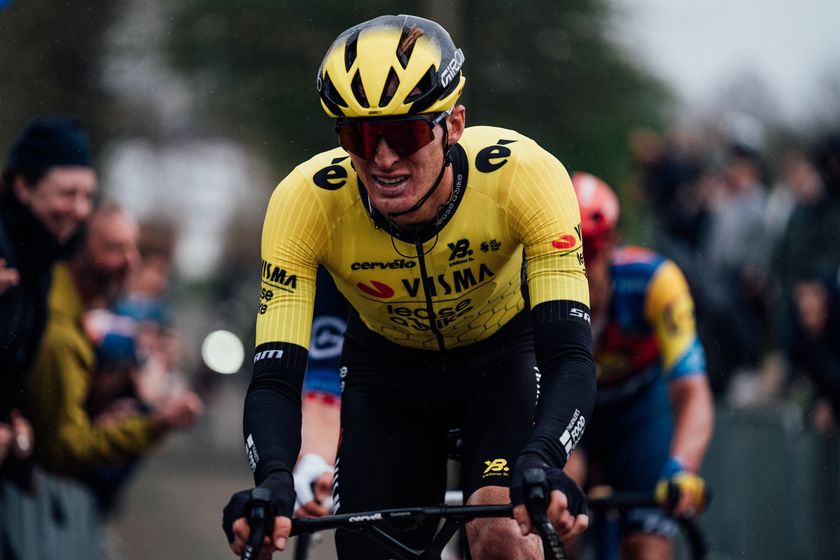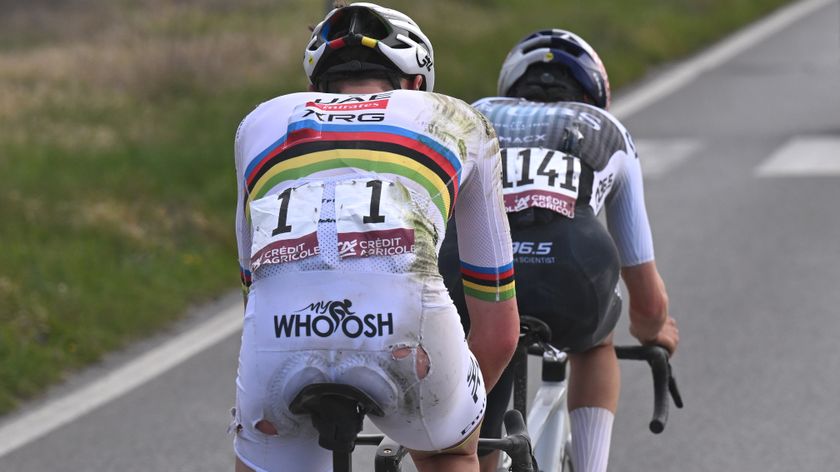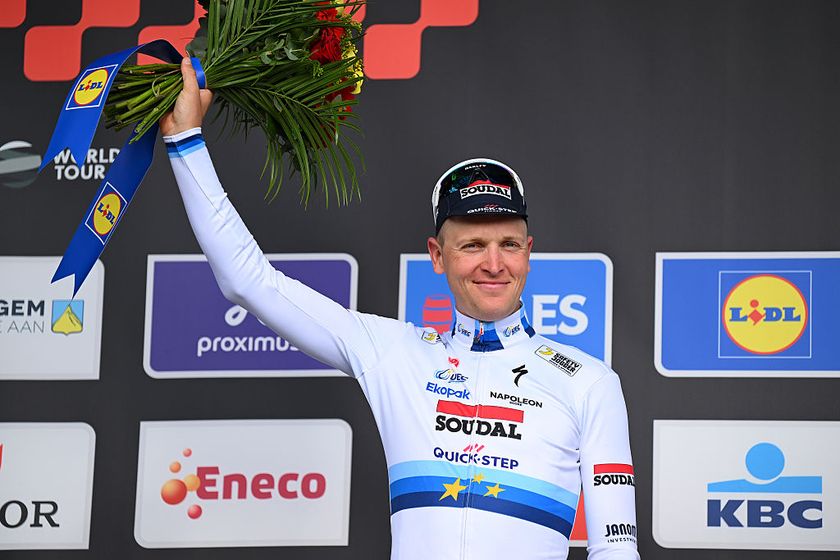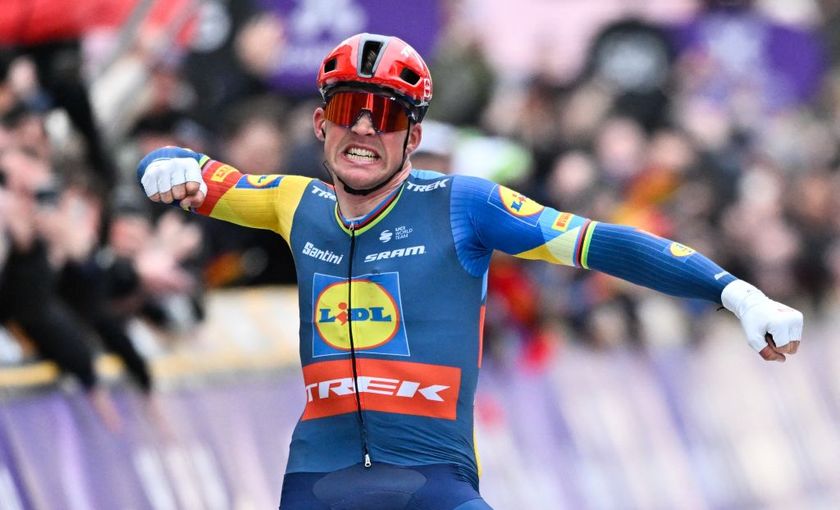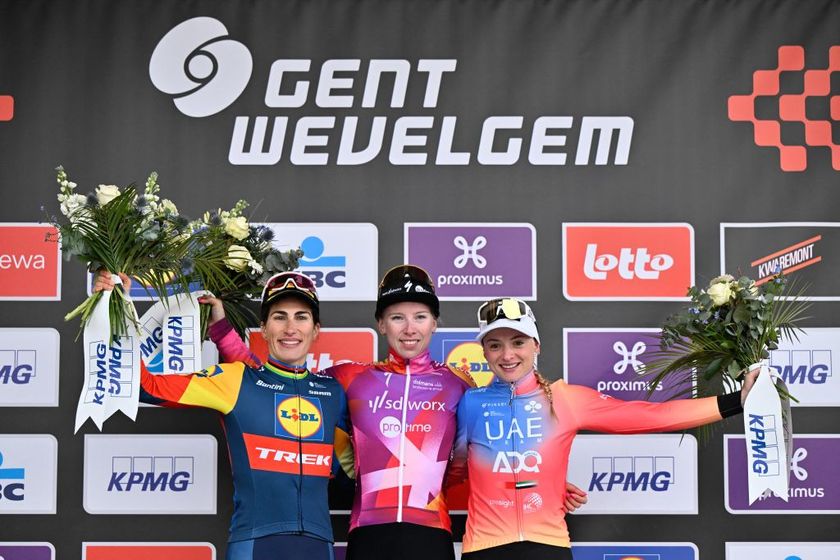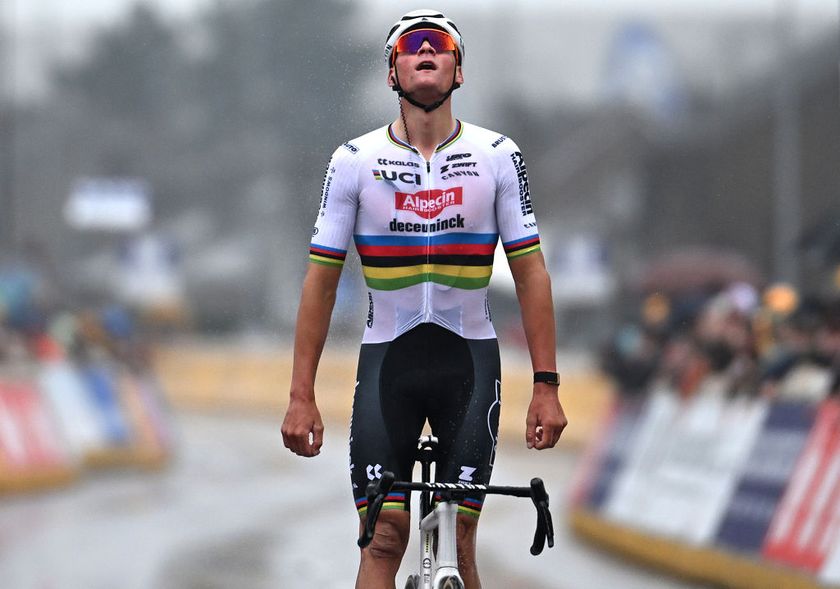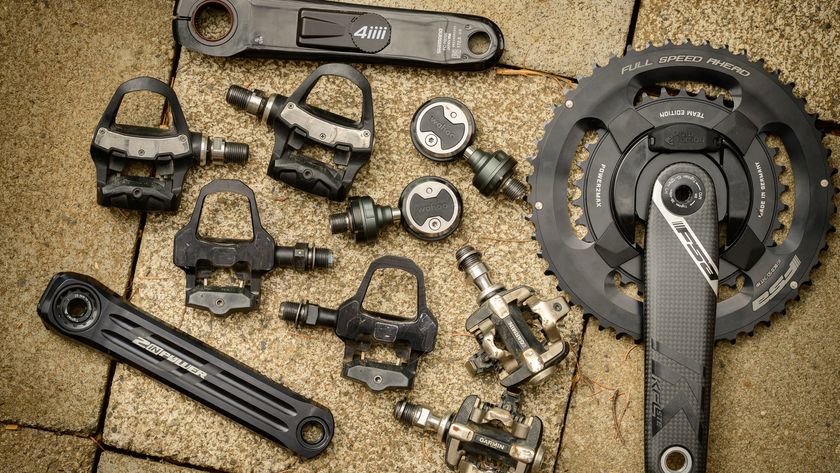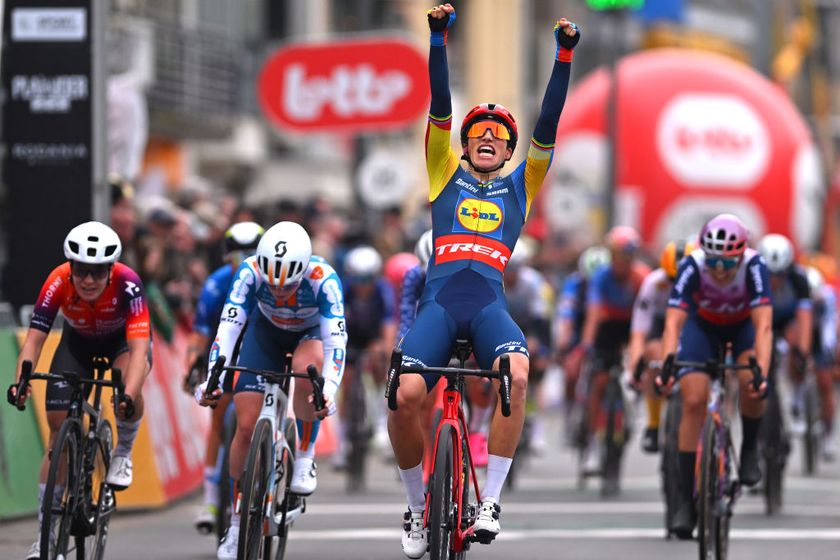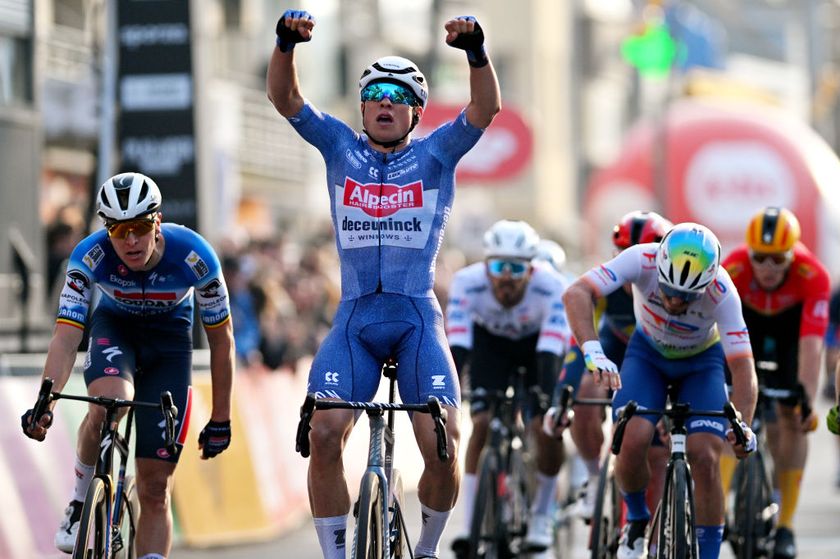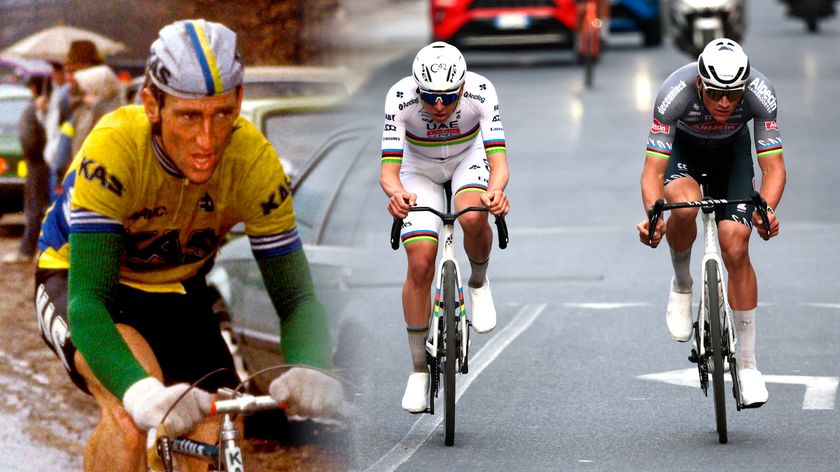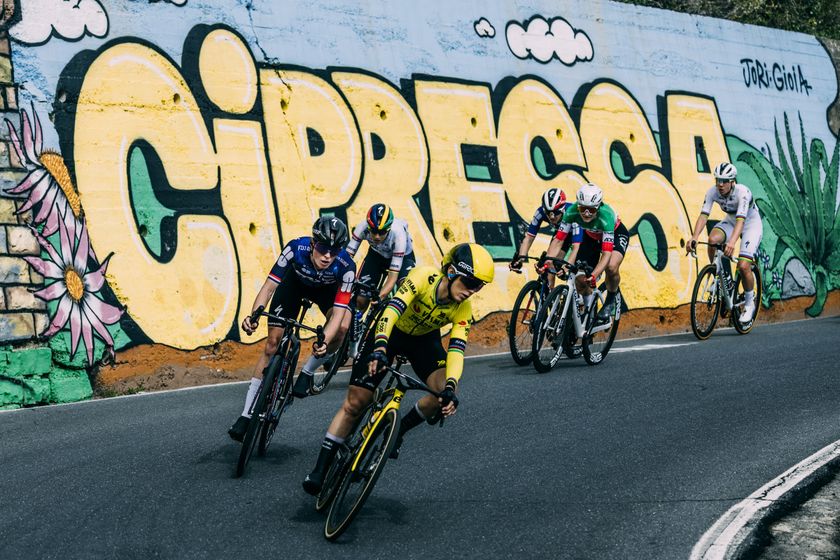A change in mindset: The evolution of LottoNL-Jumbo
Future is bright for Dutch WorldTour team





There was a point, around the summer of 2016, when LottoNL-Jumbo appeared completely lost. Struggling for wins, bereft of ideas, they were simply making up the numbers. The nadir came during the Vuelta a España, when a post-stage press release landed in the Cyclingnews inbox. We’ll spare the gory details but suffice to say the communique made for desperate reading. 'We tried to get in the break, but we failed' seemed to be the gist.
One could almost visualize and certainly empathize with the poor, exasperated directeur sportif as he wiped his tired brow, scooped empty sweet wrappers from the glove compartment of the team car, and rolled off quotes to a desolate faced press officer. The team would eventually win a stage through the veteran exploits of Robert Gesink, but the season as a whole, while not as insipid as 2015, had been a washout. Something, almost everything, had to change.
Two years later and the team are virtually unrecognizable from their 2016 campaign. Yes, they still ride in a yellow and black mesh, and aboard Bianchi celeste bikes that provide a colour palette that shouldn't work - yet does - and the cadre of management remains almost intact, but the culture, ethos and genuine feel about the team is fundamentally different.
In Primoz Roglic, Steven Kruijswijk, George Bennett and a flurry of young talent that includes Dylan Groenewegen, Sepp Kuss and Antwan Tolhoek, the team have a future brighter than almost any WorldTour rival. What’s more LottoNL-Jumbo are exciting to watch. Hell, even their press releases are worthy of reading.
The team's transformation has been steered by Richard Plugge - a onetime press officer for the team - and former editor of the Dutch version of Procycling.
Plugge can appear aloof and distant at times but he is also a strategist and businessman. You will never see him wind down the window of a team car and bellow orders at his riders like a Marc Madiot. He is the very antithesis of Rabobank’s former boss, Jan Raas. And you'll never find him psychobabble his way out of a corner like Dave Brailsford, but what he lacks in race experience he makes up for in other ways. Shrewd, calm and perhaps most importantly a natural survivor, he has turned LottoNL-Jumbo around.
Whilst it’s perhaps easy to praise Plugge's work, other factors have also played a role in LottoNL's resurgence. Rabobank, despite the murky past, ploughed millions into Dutch cycling. From grass roots levels, all the way through to the pro ranks, they financed a generation of riders and talent that the nation - and the management of LottoNL - are still benefiting from. Luck has also been important. No one could predicted Primoz Roglic’s progress, while Plugge himself had to survive some shaky moments of his own.
Get The Leadout Newsletter
The latest race content, interviews, features, reviews and expert buying guides, direct to your inbox!
At the same time, many within cycling have underestimated Plugge. For example, back in 2012 when Rabobank pulled the plug after a string of doping confessions, the bank handed Plugge the WorldTour licence and enough cash to keep the team afloat for a season. There was barely time to even wish him a 'good luck' as they bolted for the door, and although it can't be confirmed, it's understood within the higher echelons of the Dutch media that Rabobank gave Plugge the keys to the kingdom in the firm belief that he would fail, and that the team would fold within 12 months. The bank bosses wanted the team to fade away but on someone else’s watch. They were almost proved right in their prediction when Belkin pulled out from their sponsorship responsibilities earlier than originally agreed, but Plugge's ability to survive and keep the team afloat came to the fore.
Hitting rock bottom and changing the culture
If it's investment that keeps a team going then it's culture that inspires performance and results. Rabobank, during the 1990s and 2000s made a series of high-profile mistakes in the transfer market. They paid over the odds for the likes of Peter Luttenberger, Patrick Jonker, and Levi Leipheimer, and from the outside they were seen as a team that overindulged, spoilt the homegrown talent, and underperformed. There was also an arrogance to them that made them somewhat unapproachable and difficult to warm to. However, while USADA's Reasoned Decision humbly brought the team to its knees in late 2012, it also provided an opportunity. Plugge could now change the ethos around him and instil a professional atmosphere.
Just before USADA's bombshell and the proof of systematic doping existed within the team, Merijn Zeeman joined as a coach from Argos. "I think I started work on October 1 and then on the 17th Rabobank announced they were stepping down. It was a crazy period and of course I had a lot of thoughts," Zeeman tells Cyclingnews.
"The sport had a big problem, the team had a big problem. It was a pretty difficult period but I also saw that it was a big challenge."
In the winter of 2012, riders on the team were embarrassed to wear their team clothing in public but the Dutch fans began to find faith during following summer due to inspired Tour rides from Bauke Mollema and Laurens ten Dam. However, when Belkin then pulled out during 2014 Plugge, Zeeman and the rest of the management found themselves at another difficult cross-roads. They had just begun to build some momentum, only for the rug to be pulled from under their feet. By now the Rabobank coffers were all but empty and cuts had already been made the year before. Although Plugge wouldn’t admit it, the team were in serious trouble.
"When Belkin left in 2014 and the new sponsor came in, that was a tipping point," Plugge says.
"Lotto Jumbo and Brand Loyalty came in and helped us a lot to make that next step. That was the moment I knew that we were at the bottom but had the way to come back up. There was no way that this team was going to stop. I'm not that guy."
Despite Plugge's optimism the team's struggles continued on the road. They had dropped from being one of the three richest teams in the world to being within the three poorest, all in the space of 18 months. Riders with talent were leaving in their droves and mistakes were still being made in recruitment. Dylan Groenewegen had been on their radar, and wanted to go to a Dutch team, but he slipped through the team's net and went to Roompot for a year. The old Rabobank mentality still lingered within the team and it took until May of 2015 for the team to win their first race of that season. Only five more wins would follow that year, and while 2016 heralded an improved net return with 19 wins, over half of them came from Groenewegen, and only three were at WorldTour races.
"We had to hit that bottom point in 2015. We realized that it wasn’t the right way to work. We had to change the structure, we had to change the way of working. We couldn't continue down that road. In 2016 we started to find our way," says Zeeman.
"In the winter of 2016, we realized that we needed to make our team more attractive for young riders and for sponsors. We looked at our structure, our programme, and our whole way of working. Our focus changed from just looking at results to thinking about everything we did on a daily basis. We asked ourselves, what could we do to improve things for our athletes. The next step was trying to encourage everyone on the team to be more committed to the squad. There were lots of sessions and we really looked at the direction in which the team was going. We started from zero."
That winter Plugge and Zeeman sat down with the riders and thrashed out plans to change the team. They had no choice. At the time, there were murmurs within the Dutch cycling fraternity that Plugge could be replaced but eventually the board gave him the backing he desperately needed, while Zeeman moved from his coaching role into a more performance director position. Along with Nico Verhoeven, those three effectively took control and set in motion a more structured management and vision. New staff were brought in, 'team plans' were created and investment was put into areas that had previously been taken for granted.
On the roster side, Robert Gesink moved into a role of road captain, and mentor, and took on less responsibility as a stage racing force. Several other riders were moved on, and fresh talents that were signed between 2015 and the start of 2017 were given the chance to flourish. Primoz Roglic defied all logic and hit the ground running with an astonishing career trajectory that remains on an upward curve, but the real changes came behind the scenes. Zeeman took on more responsibility, while the Brand Loyalty partnership with speed skating saw an injection of new ideas, investment and product development take place. Greater stability now ran through the team, and what’s more, the riders started to buy into the changes.
"One of the most difficult things when you're coming from one of the biggest teams to one of the smallest is that you're having to change the whole mindset," says Plugge.
"That has to happen across all layers of the organization. Internally that's a big challenge. We had to talk a lot, we had to make people understand and there were some difficult choices. Some left, and it was a case of looking at the reality. Some understood, some didn’t."
Zeeman understood, and he embraced the challenge. He helped bring in new staff, from mechanics to nutritionists, and in 2017 the team won two stages at the Tour de France – their first Tour wins since Lars Boom's triumph on the cobbles in 2014.
"When you come from being Rabobank, where you have one of the biggest budgets and all the people around are used it, it feels like everything is possible and that there's never a limit. Then, every year, if you have to take a step back and you have to let riders go because you can't afford them anymore because your cutting millions, then it really harms the energy around your team," Zeeman says.
"That happened and that took us to some difficult moments but we survived and that's a big compliment to Richard Plugge. He kept it going, riders still had a WorldTour future and a lot of people still had jobs to go to."
If there was an element of luck in finding Roglic, then the team at least deserve credit for a number of other signings. Koen Bouwman, Sepp Kuss, Neilson Powless, and Antwan Tolhoek have all impressed, while the team have reinvigorated the careers of Enrico Battaglin and Steven Kruijswiijk. The signings of Tony Martin, Lennard Hosfstede, Laurens de Plus and Mike Teunissen will only strengthen the team’s depth going forward. They look like a team with a real purpose – a feature that rarely ran through Rabobank and their collection of expensive toys.
"What I see now is that when I contact talent, and good riders, they really believe in how we work and we have a good image with those guys," explains Zeeman.
"That’s what we hear from inside the peloton too. I can of course tell you good nice stories but the best publicity always comes from your athletes."
This year's results speak for themselves. At the point of writing, the team have picked up 29 wins, with nine of them coming at WorldTour level. They secured fourth and fifth at the Tour de France, and took the fight to a dominant Team Sky whenever and wherever they could. Plugge has blended the old Rabobank steeds with new bucks, and with added investment the next seasons promise to be exciting. The future may not be Rabobank orange anymore but it's still bright.
Daniel Benson was the Editor in Chief at Cyclingnews.com between 2008 and 2022. Based in the UK, he joined the Cyclingnews team in 2008 as the site's first UK-based Managing Editor. In that time, he reported on over a dozen editions of the Tour de France, several World Championships, the Tour Down Under, Spring Classics, and the London 2012 Olympic Games. With the help of the excellent editorial team, he ran the coverage on Cyclingnews and has interviewed leading figures in the sport including UCI Presidents and Tour de France winners.
